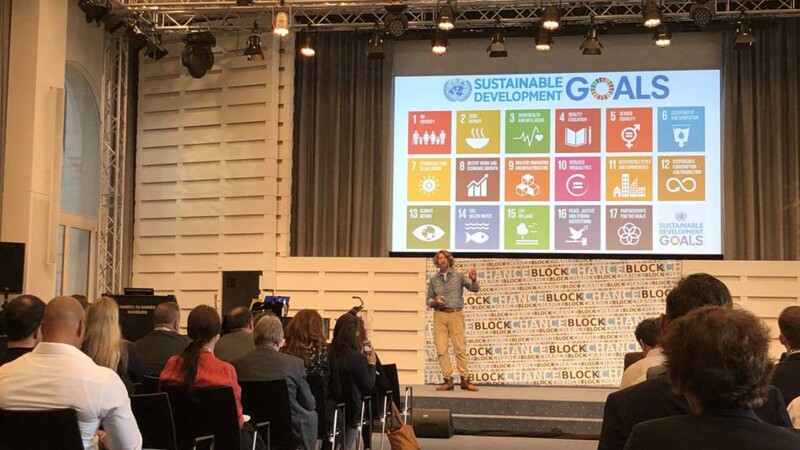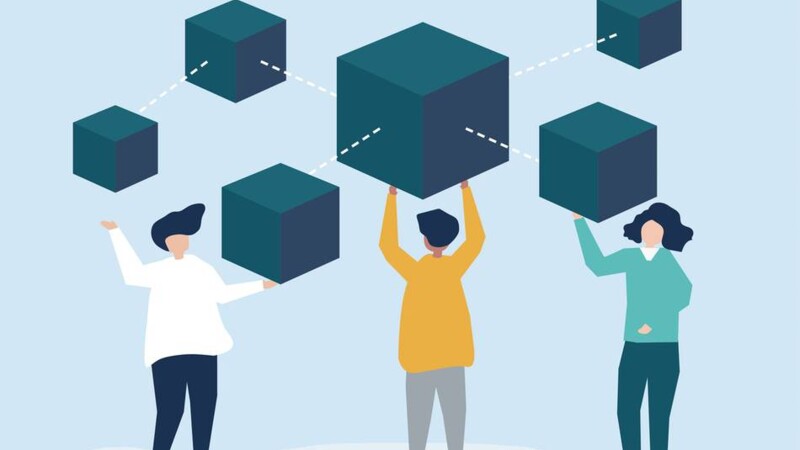Hamburg News: Can you explain the technology behind the blockchain?
Lennart Ante: Blockchain technology is a way of sending “values” safely over the internet. However, it does not represent a new technological idea, but rather a sophisticated mix of existing technologies. I give the example of an MP3 file to show how it works. If you send an MP3 file per e-mail, the sender always keeps the original file on their computer and sends only a copy of the file to the recipient. The recipient can copy and forward the copy as often as they like. This leads to the so-called double-spending problem meaning the risk that an asset or a currency is spent twice. For this reason, banks in the real economy are used as intermediaries to ensure that their customers’ payments are made on the internet. If one were to use the MP3 file in a blockchain network, on the other hand, a kind of copy protection would exist. Thus, only the original could be sent. This is not limited to files or money, but can also be transferred to “values” i.e. energy units, company shareholdings, property rights or data.
Hamburg News: What is the Blockchain Research Lab’s mission?
Ante: The dynamics of blockchain technology are characterized equally by start-ups and established companies. However, their activities and projects focus mainly on its potential for applications and new business models. Substantial basic research is still lacking. For this reason, the BRL investigates the impacts of blockchain technology on society, commerce and politics. Our research into its opportunities, effects and risks for different markets and industries is interdisciplinary. It is important to us that the Blockchain Research Lab acts independently and neutrally. For this reason, the lab has been founded as a non-profit company. In the medium term, we would like to use the BRL as a platform for questions, ideas and findings on the further development and adaptation of blockchain technology and its socio-economic consequences.
Hamburg News: What distinguishes Hamburg as a location for blockchain technology?
Ante: The blockchain scene in Hamburg has developed steadily in recent years and has a certain down-to-earth quality, which may be attributed to the business location. Projects and ideas are pursued sustainably and companies try to use the blockchain technology for real economic purposes. Both politicians and local government in Hamburg have recognised the relevance of blockchain technology and are promoting the technology.
Hamburg News: Where do the opportunities lie?
Ante: The technology has the potential to sustainably change a large number of business processes. However, this will not happen overnight. In reference to real economic processes, the technology is plausible for money transfers. Firms specialising in global money transfers charge their customers high fees. The use of crypto currencies could eliminate such processing fees almost entirely. In short, the use of blockchain technology can make intermediaries and the transfer of assets cheaper and transparent. However, the technology is not limited to money, and has far more to offer society, e.g. education or public administration.
Hamburg News: What are the associated risks?
Ante: Blockchain technology is not a panacea – and is unsuitable for a variety of applications. Independent, scientific principles still have to developed and information made available. The technology is far from mature. As with other technological innovations, there is a risk of isolated errors and inefficiencies. But one of the biggest problems is that speculative bubbles of crypto currencies, as in the case of the rapid price increase of bitcoin in late 2017, have dented the general reputation of blockchain technology. People who are interested in the technology should not be deterred by general, negative preconceptions, but should seek independent information.
Hamburg News. Is blockchain here to stay?
Ante: I am convinced that the blockchain will become a basic technology for everyday use in different areas of life. However, not everyone will understand it fully. The obligatory “https” that pops up in the browser window comes to mind. Everyone uses it, some people know it, but only very few understand it – yet it works. In my opinion, blockchain or similar technology will become and remain an integral part of our lives.
sb/pb
Interview by Sarah Bischoff



